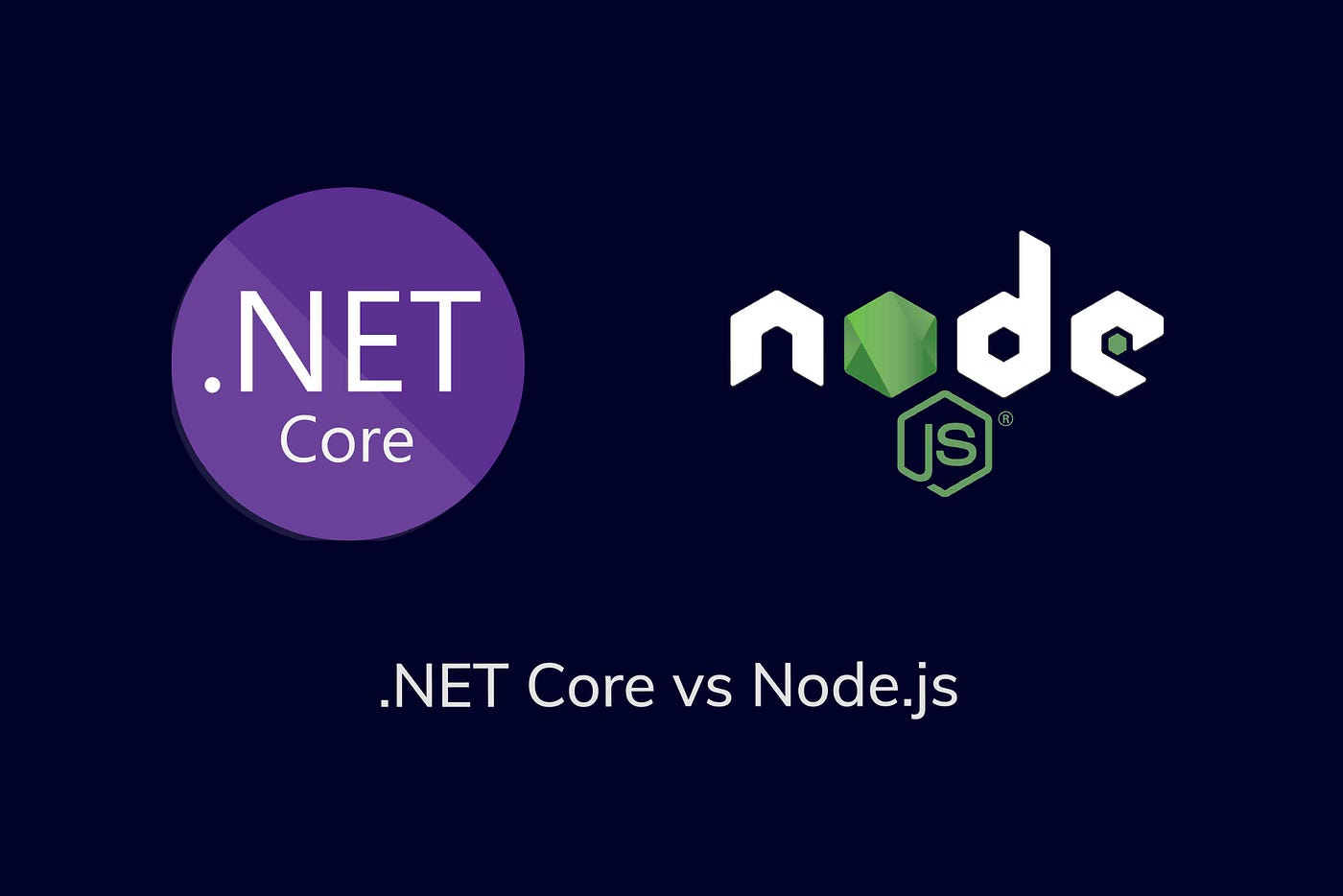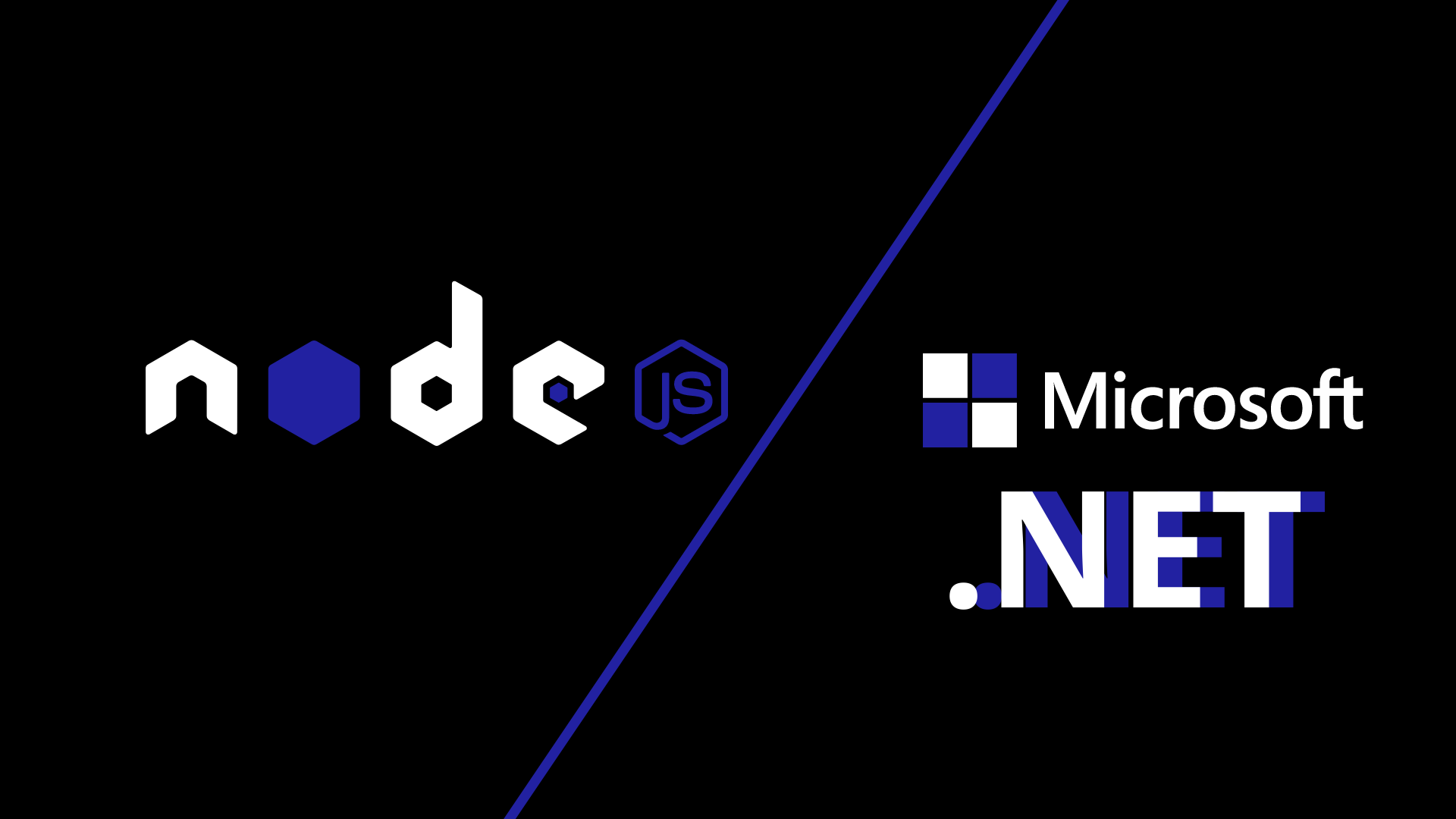Comparison: .NET vs Node.JS
The world of software development is continuously evolving with plethora of new technologies and updates. The various web development technologies differ mainly in their speed, usage, technicality, performance and reliability by which it can operate the multiple tasks.
Also, based on the programming and scripting languages used by them they can be used for different tasks.
Among various, two famous ones are compared here, Node.JS vs .NET. Mostly web developers (especially beginners) get confused about their right usage.
Node.JS vs .Net, to understand the basic difference points between the two languages, let’s dive deep into knowing the basic features, similarities and differences of each and expand our understanding about them.
Table of Contents
Node JS
- History and launch: Launched in 2009, made by Ryan Dahl. Since then, it is continuously being updated.
- Language and scripting: Node.js is an open-source, free cross-platform JavaScript runtime environment. It runs on the Chrome V8 JavaScript engine, allowing it to be very performant.
- Platforms: js runs on all platforms – windows, Linux, Unix and Mac, etc. and utilizes JavaScript on the server side.
- Web Usage: Software engineers can implement Node.js for both frontend and backend It offers pre-made module-shaped code that can be similar to JS library.
- Running speed and performance: Node.js runs with a single thread for every concurrency. This allows it to handle multiple concurrent connections within a single server without the burden of managing separate threads.
- Non-blocking JavaScript codes: Its library has set of asynchronous I/O primitives that prevent JavaScript code from blocking any incoming request. While performing any I/O operation, like-reading from network, accessing databases or filesystems, instead of blocking and letting CPU cycles waiting, Node.js resumes the operations when the response comes.
- Security and cross connections: Node.js repository is full of packages, and offers an auto-file-locking function thus increasing the security of new dependencies, once those are added to a project. It connects libraries written in various languages and interacts with I/O devices.
Node.js Advantages:
1.Useful at both frontend and backend, users can now write both server-side and client-side code without the need to learn any other language.
- High performance, scalability and efficiency due to its event-driven, non-blocking I/O architecture and use of single-threaded event loop as already discussed above.
- Rich ecosystem of embedded packages and libraries to ease the experience, reduce time.
- Lightweight module, fast startup and quick response time. This allows developers to iterate quickly on their code, receive feedback, and make improvements in comparatively short time.
Where to use Node.js and which companies are using it?
It is used for programming for input/output apps, data streaming apps, data-intensive real-time applications, JSON API-based apps, single-page apps, but not suitable for CPU-consuming apps that require complex user actions and high RAM.
Some cases when it can be used are mentioned below:
- Developing web applications
- Developing applications for Linux, OS X, and Windows
- Real-time web applications
- Streaming software
- Messaging programs
- Chat applications
- Applications for social media
- Online emulators
- Play-along games
- Tools for collaboration
Some famous companies currently using Node js services are listed:
Linkedin: World’s largest professional networking site uses Node.js for its backend services which allows it to handle many same time incoming requests and provides platform for real-time updates of features- notifications, messaging, and news feeds.
Netflix: Website is converted into a single-page app using JavaScript and Node.js. While Java supports its backend operations, its user interfaces are powered by Node.js.
Paypal: PayPal uses Node.js for its backend services and APIs. Node.js enables PayPal to handle real time concurrent requests, process payment transactions securely and provide real-time notifications with updates to its users.
Uber: Uber was the first to use Node.js. Most of its user-based services like- booking rides or check out the available vehicles, are Node-based. Uber uses Node.js for its backend services, including handling ride requests, location tracking and all real-time updates.
NET
- History: .Net was launched by Microsoft in 2002.
- Languages: Officially Microsoft .NET supports only 3 languages – C#, F#, and Visual Basic but on the platform it supports 60+ programming languages including COBOL, Eiffel, Python, C++, Cobra, APL, etc. ensuring language-independent development.
- Usage: .NET is used to develop diverse applications from web apps, mobile apps, desktop apps, Microservices, cloud services, to ML, game development, IoT applications, etc.
.NET framework allows building versatile web services across multiple operating systems, desktop apps with designs and mobile apps with a single code for various OS. In addition, .NET is beneficial developing microservices that run on Docker containers and can be deployed independently.
- Platform: Cross-platform, free open source framework, can be used on Windows, Linux, macOS.
- Can handle simple and complex data: It has pre-defined class libraries to process both types of databases. NET makes it possible to use existing cloud services/build and deploy new. It allows users to add vision algorithms, speech recognition and predictive analytics. .NET framework implementation can be used for building IOT, where .NET facilitates building of smart and interconnected devices.
- Security: It is secure and encrypted.
Advantages:
- Cross platform migrability, can work in any OS.
- Can undertake complex tasks as it has inbuilt libraries and repositories.
- Uses many languages, F#, C#, etc. The codes written in thse languages are compatible on any other platform.
- Richness of various libraries and packages, offering solutions almost instantly.
Some companies using .Net development services are mentioned:
- Samsung: Samsung uses .NET to develop its web applications, mobile applications, and other software solutions.
- Microsoft: Microsoft uses it extensively as it is the one who launched .NET framework.
- Cisco: It uses .NET to build applications for managing and controlling their networking equipment and for developing web applications and services that support their networking solutions.
- Dell: Dell specializes in hardware, software and IT solutions, uses .NET for various business activities, for developing web applications, software solutions for their products and services related to IT infrastructure, including servers, storage and networking.
.Net vs Node.js
Having talked about almost all features of both, including similarities and all differences we can now move ahead and choose as per the personal and professional demands.
Node.js is based on JavaScript, while .Net uses C#. This small difference can have a major long-term impact on the whole development industry.
Which one to choose- .NET or Node.JS?
Ultimately, the best choice will always and always depend on developer’s and user’s specific needs.
- If you require fast and scalable app for simple operations, Node.js is a suitable option. If you need to build complex solution using rich repositories of libraries and tools, .Net is a practical choice.
- js is perfect for developing websites and real-time apps, where need is to handle major traffic or process real time data quickly. .Net is used for developing all sorts of processes, from simple to complex, ranging from websites to mobile apps, web apps, ML, IOT, etc.
- However, Node.js and .NET can be used for building fast, scalable APIs for real-time applications. Both frameworks facilitate seamless data exchange and integration between different software systems, hence bested suited for API development services
Conclusion
So, after carefully reviewing advantages, disadvantages, features and other aspects of Node js vs .net, it can be concluded that both technologies hold prominence in their own way and when, how and where to use each critically and strongly depends on the what the developer wants and what its project demands.
It is our advice to first evaluate length and depth of the project, its needs, demands, budget and other more critical but important aspects of your project, and then arrive at the decision of choosing the best option among all available software technologies.



